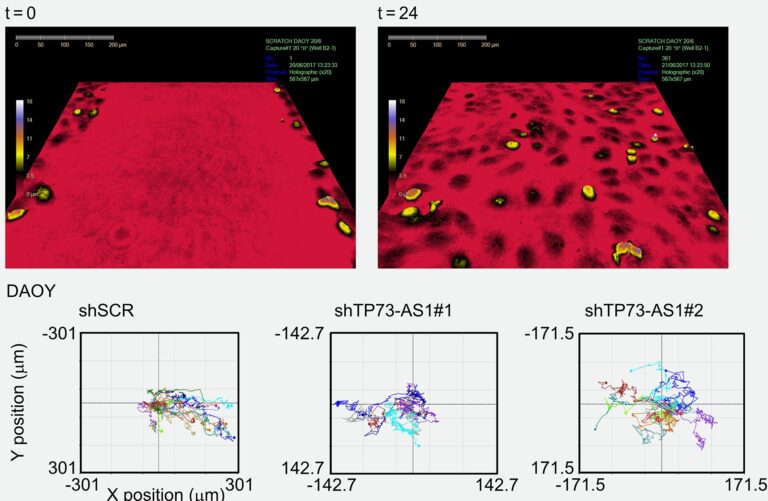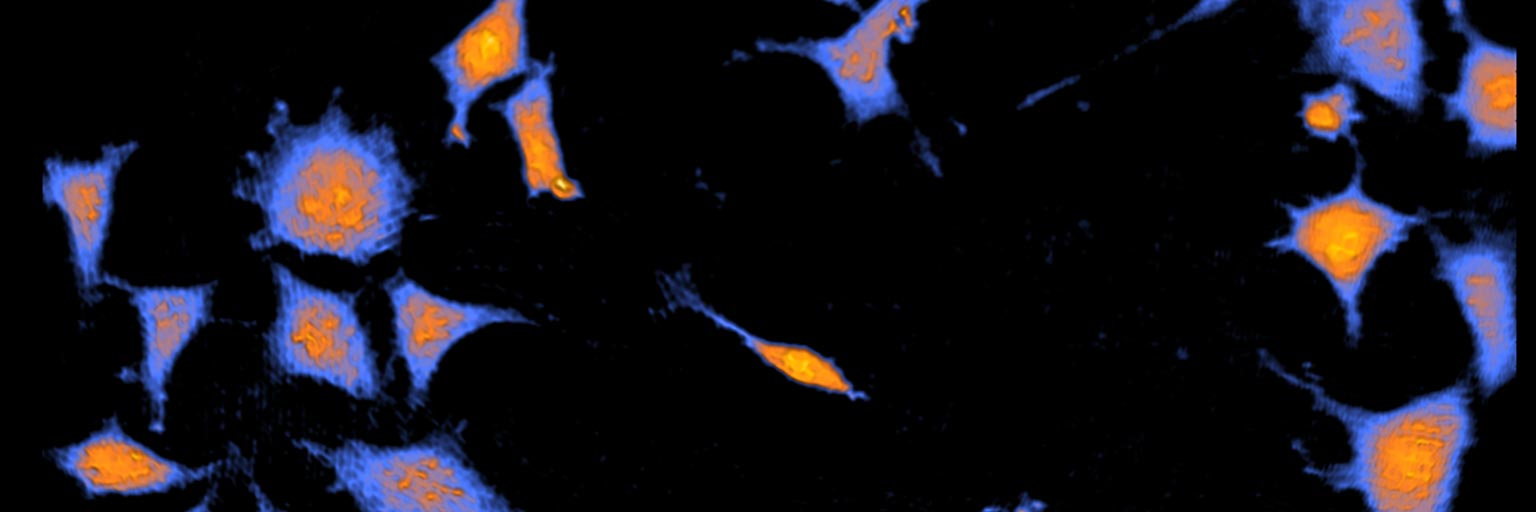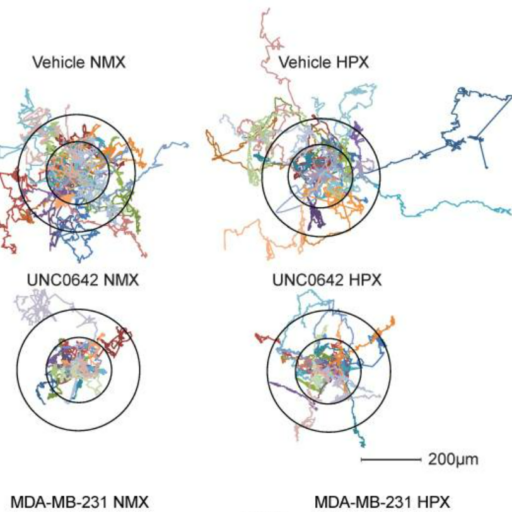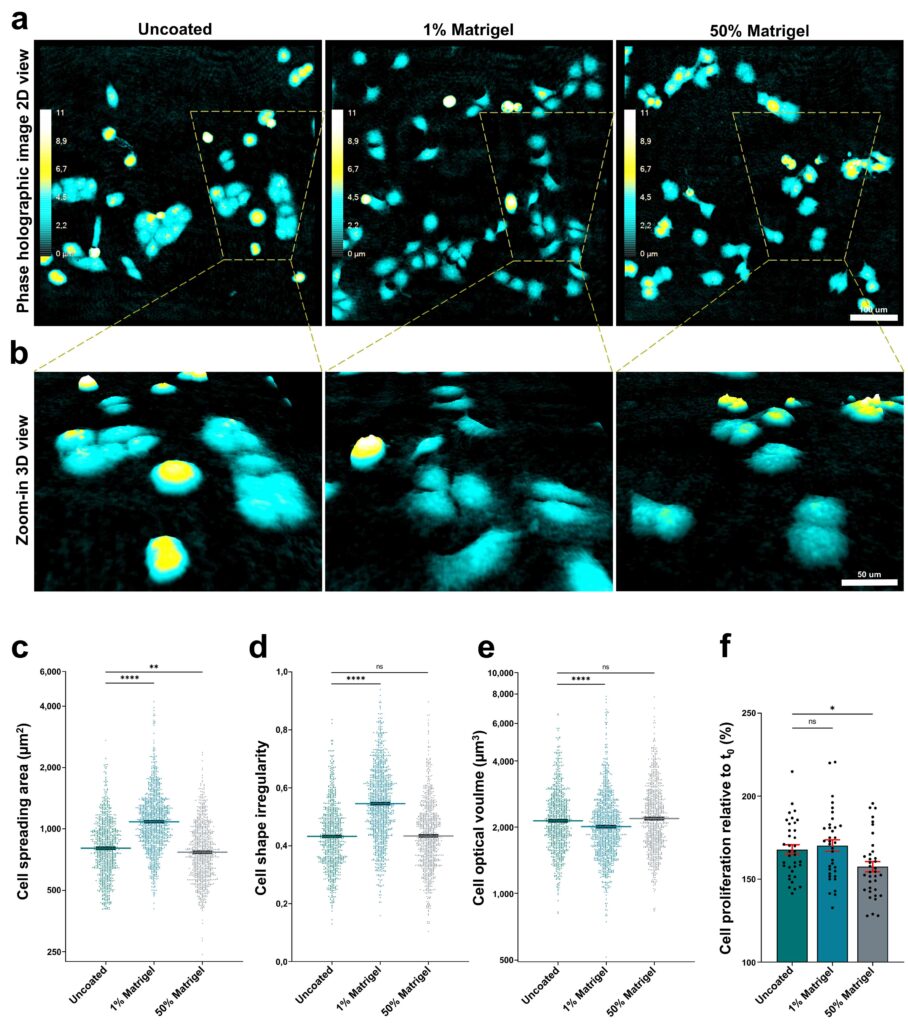Advancing Cancer Research with Quantitative Live Cell Imaging
Cancer is a leading human disease with persistently high mortality rates. Thus, understanding the how, where, why and with whom metastatic cancer cells disseminate and proliferate is one of the highest importance in cancer research. The HoloMonitor live cell imaging system advances your cancer research with a non-invasive way to measure and quantify cell activity in real-time without compromising the integrity of your precious cells. Therefore, you can get more accurate and native results from your experiments.

A live cell analysis tool with real-time data
Find out more about how HoloMonitor live cell imaging can accelerate your cancer research!
Featured publications within cancer research
Measure mitotic activity in melanocytes
Cutaneous melanoma is deadly skin cancer. The activating mutation BARFV600E mutation exists both in moles and over half cutaneous melanomas.
In this study, in order to investigate why the same mutation has such different consequences in moles and melanomas, the authors using HoloMonitor studied cell proliferation, cell dry mass, cell death and cell growth rate. The experiments showed by increasing the levels of two microRNAs in melanocytes induces mitotic failure, genome duplication, and proliferation arrest. BRAFV600E induces a similar proliferation arrest in primary human melanocytes that is both reversible and conditional depending on the differentiation state of the melanocyte.
On-demand webinar
The secrets to truly controlled cell experiments for cancer research
Find out how HoloMonitor provides better insights by analyzing proliferation, morphology and movement data for both single cells and cell populations.
Discover HoloMonitor Live Cell Assays
Learn more about what you can do with HoloMonitor
Answer cancer research questions with quantitative live cell imaging
24 hours time-lapse video of MDA-MB-231 breast cancer cells
72 hours time-lapse video of JIMT-1 breast cancer cells
Browsing publications in cancer research
Get inspired by other research fellows, and learn how HoloMonitor quantitative live cell imaging can benefit your cancer research:

Assembly of Epithelial Monolayers and Transmigration of Cancer Cells Captured with Phase Holographic Imaging
Journal: IEEE (2020)
Research Areas: Cancer research
Cell Lines: Vero and HeLa
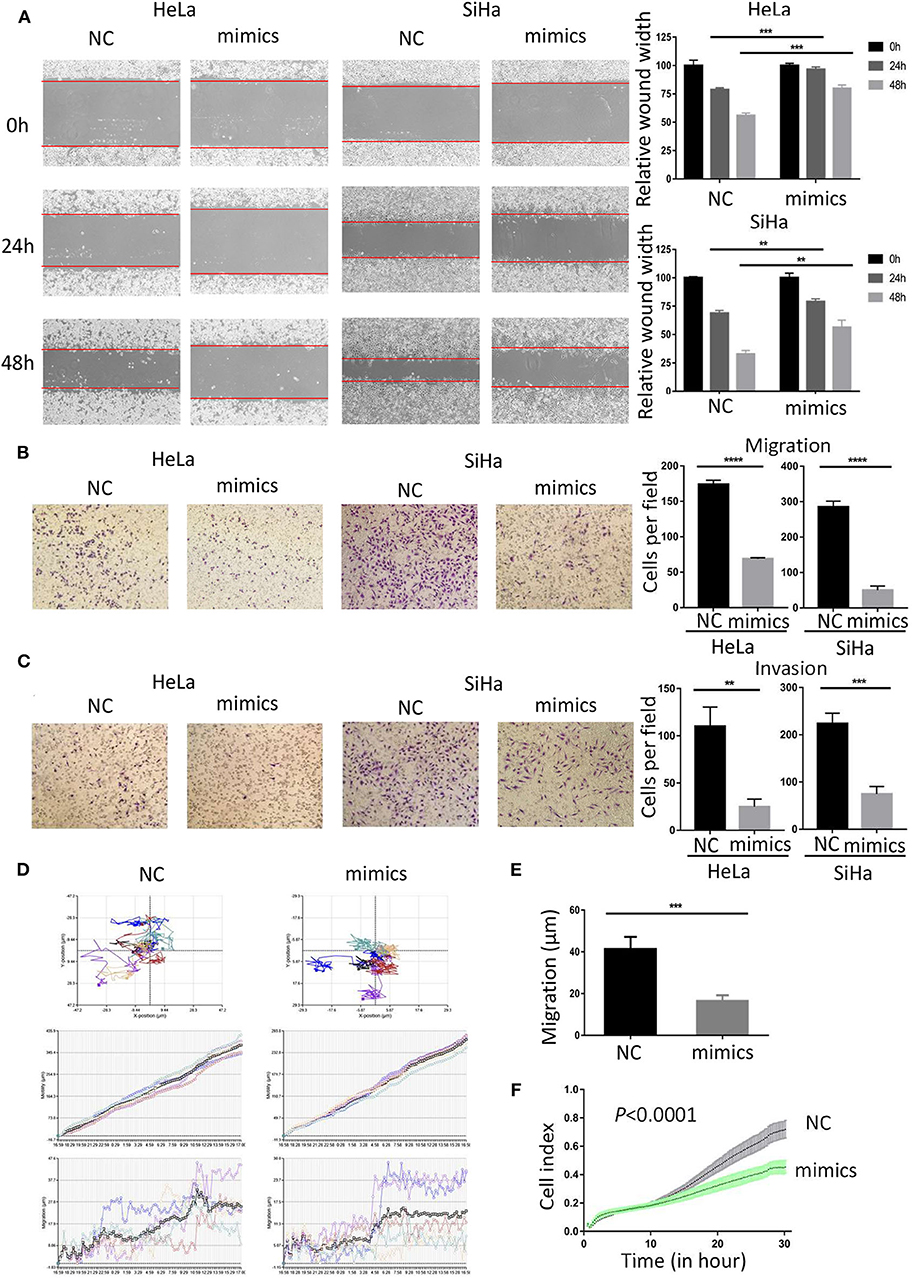
MicroRNA-362-3p Inhibits Migration and Invasion via Targeting BCAP31 in Cervical Cancer
Journal: Frontiers in Molecular Biosciences (2020)
Research Areas: Cancer research
Cell Lines: HeLa

Defining COMMD4 as an anti-cancer therapeutic target and prognostic factor in non-small cell lung cancer
Journal: British Journal of Cancer (2020)
Research Areas: Cancer research
Cell Lines: HBEC3-KT, H460, H1975, CRL5889

The human papillomavirus confers radiosensitivity in oropharyngeal cancer cells by enhancing DNA double strand break
Journal: Oncotarget (2020)
Research Areas: Cancer research
Cell Lines: OPSCC

G9a-mediated repression of CDH10 in hypoxia enhances breast tumour cell motility and associates with poor survival outcome
Journal: Theranostics (2020)
Research Areas: Cancer research
Cell Lines: MDA-MB-231, MCF-7

Antibacterial AZT derivative regulates metastasis of breast cancer cells
Journal: European Journal of Medicinal Chemistry (2020)
Research Areas: Cancer research
Cell Lines: MDA-MB-231

